

Since 1994, SSEK has supported overseas study opportunities for its associates as part of the firm’s professional development program. Today, we talk with Bima D. Adhijoso about his recent overseas studies.
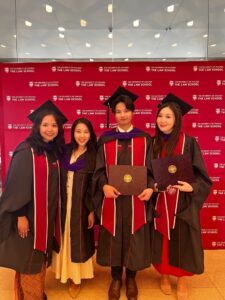
Where did you go and why?
I pursued my Master of Laws (LL.M.) at the University of Chicago Law School (“UChicago”), a prestigious institution renowned for its academic rigor and influential legal scholarship. Consistently ranked among the top three law schools in the nation by U.S. News & World Report, UChicago is also the birthplace of law and economics and home to an exceptional faculty, including distinguished scholars such as Profs. Tom Ginsburg, William Baude, and Eric A. Posner, as well as former U.S. President Barack Obama.
One of the defining features of UChicago’s LL.M. program is its highly selective cohort, with fewer than 80 students admitted worldwide in my year. This intimate setting allowed me to build meaningful connections with classmates from diverse legal backgrounds, an opportunity that might be harder to come by in larger programs. The close-knit community enriched my experience, enabling collaborative learning and lasting professional relationships.
UChicago’s emphasis on law and economics has been particularly valuable to my practice as a mergers and acquisitions lawyer. The interdisciplinary approach sharpened my ability to analyze transactions through both legal and economic lenses, equipping me to provide clients more strategic, well-rounded advice. The knowledge I gained complements my expertise, enhancing my ability to navigate complex M&A deals with greater acumen.
Beyond the curriculum, UChicago’s Socratic teaching method played a pivotal role in honing my critical thinking and responsiveness. Professors often employed the cold-call technique to challenge students to articulate well-reasoned arguments on the spot. This not only pushed me to study diligently but also trained me to think quickly under pressure, which is an invaluable skill for any lawyer. Whether fielding unexpected questions from clients or negotiating in high-stakes boardroom discussions, the ability to respond with clarity and confidence is indispensable.
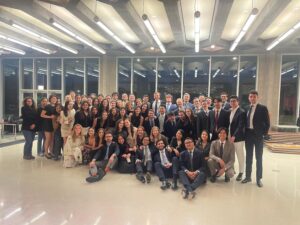
Give us an overview of your study program and what you learned?
The structure of my LL.M. program at the UChicago differed from that of most U.S. law schools due to its distinctive quarterly academic system. This framework enabled me to concentrate on three to four rigorous courses per quarter, which facilitates both depth of study and balanced workload management. The core of my curriculum focused on corporate law subjects directly relevant to my practice, including Business Organizations, M&A, Antitrust Law, and Contract Law. These courses provided me with essential knowledge of U.S. legal principles and their practical application in commercial transactions.
True to UChicago's celebrated “life of the mind” ethos, I supplemented my core curriculum with elective courses that reflected both professional interests and academic curiosity. Notably, I enrolled in Prof. Tom Ginsburg’s International Law class, which was motivated by my prior engagement with his scholarly work during my participation in the Philip C. Jessup International Moot Court Competition as an undergraduate. I also took Prof. Jesse Ruiz’s negotiation course to develop practical skills beyond theoretical legal analysis.
A particularly valuable aspect of the program was the opportunity to study the common law system in depth, which contrasts markedly with Indonesia's civil law tradition. This comparative perspective enhanced my ability to analyze legal rules not merely as codified provisions but as instruments designed to achieve specific policy objectives. Such analytical skills have proven indispensable when advising clients on cross-border matters or interpreting legal principles across different jurisdictions.
The program's rigorous academic environment cultivated a more sophisticated approach to my legal analysis, emphasizing critical thinking, policy evaluation, and strategic problem-solving. Today, I apply this dual understanding of civil and common law systems to provide comprehensive advice to clients engaged in complex cross-border transactions, ensuring our firm delivers solutions that account for both legal doctrine and commercial realities.
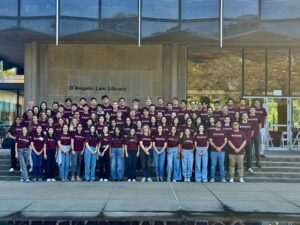
What are some of the differences/similarities between Jakarta and the U.S.?
The most immediate difference, of course, was the absence of Nasi Padang and Sate Ayam, two dishes I sorely missed during my time in the U.S. My attempts to recreate them were, regrettably, unsuccessful.
Beyond culinary preferences, the most striking contrast was the difference in academic culture. During my undergraduate studies in Indonesia, classroom engagement was often limited, as students were generally less accustomed to actively posing questions or participating in discussions. In contrast, my experience at UChicago was defined by an interactive, discussion-heavy learning environment, shaped by the Socratic method, which emphasized dialogue, critical questioning, and intellectual exchange.
Outside the classroom, I found myself embracing outdoor activities far more frequently than I ever had in Jakarta. The city's air quality and intense heat often discouraged such pursuits back home. In Chicago, however, I took regular walks along Lake Michigan, and though the half-hour commute to campus was lengthy, the scenic route made it thoroughly enjoyable (although, unfortunately, not during Chicago’s –30°Cwinter). I also had the opportunity to learn pickleball, only to discover later that padel is more popular in Jakarta. Regardless, it was a delightful new experience.
Despite these differences, I was pleasantly surprised by one key similarity: the warmth and friendliness of the people. Studying in the Midwest, where people are known for their hospitality, I was frequently met with kind compliments and easy small talk from strangers. This openness reminded me of home, where Indonesians are similarly welcoming and generous in spirit.
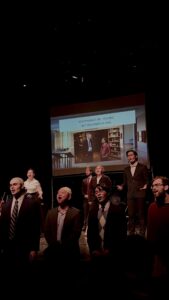
How did you find the transition between working full time and studying full time?
Initially, I found the shift from full-time work to full-time study quite refreshing. Waking up without the immediate need to check my Outlook inbox was a welcome change. I also appreciated having more time for casual reading during weekends and academic breaks. Most importantly, I rediscovered the joy of studying law not merely to apply it in transactional documents, but for the sake of learning itself. This intellectual freedom encouraged me to think beyond my professional comfort zone and rekindled my passion for the law.
Over time, however, I began to miss certain aspects of my work life. Surprisingly, I found myself longing for conference calls and the process of redlining sale and purchase agreements (and of course, the familiar notification from my mobile banking app on the 25th of each month).
Now that I have returned, I am eager to contribute even more to SSEK’s mission of excellence by applying the insights and skills I gained during my studies at UChicago. I look forward to working alongside our talented team to deliver the highest level of service to our clients.
What are some of the things you missed about Jakarta? And what will you miss about the U.S.?
Surprisingly, I found myself missing Jakarta’s perpetual warmth. While I had always considered myself someone who preferred cooler climates, Chicago’s harsh winters and relentless winds made me realize I am, at heart, a tropical climate enthusiast.
As I return to Jakarta, I will dearly miss several aspects of life in Chicago. My daily walks along the scenic Lake Michigan shoreline provided both exercise and moments of reflection. The iconic Mansueto Library at UChicago, which was more than just a study space; it represented the intellectual rigor of my LL.M. experience. The vibrant energy of the Northalsted neighborhood, which offered a dynamic urban environment unlike any other. And, most importantly, I will cherish the meaningful friendships I formed during my time in Chicago, relationships that enriched both my personal and professional growth.
What was the highlight of your experience?
Two particularly memorable moments stand out from my time at UChicago. The first was earning an A in my Contract Law course, and the second was participating in the annual UChicago Law School Musical, where I had the honor of portraying the school's former dean, Prof. Edward E. Levi.
The first moment held special significance for me given UChicago's rigorous environment and curved grading system. Competing alongside my exceptionally talented cohort made this accomplishment particularly rewarding. I still remember studying late into the night at Mansueto Library to make sure that I fully understood the Uniform Commercial Code.
The second moment represented a personal milestone, as I had never before felt confident enough to sing publicly. Pushing beyond my comfort zone, I performed (and even danced) before an audience for the first time (which, surprisingly, paid $30 to watch). Fortunately, my vocal abilities proved more reliable than my attempts at cooking Indonesian cuisine during my stay.
These experiences one academic, one personal perfectly encapsulate the growth opportunities afforded by my LL.M. program, challenging me both intellectually and personally.
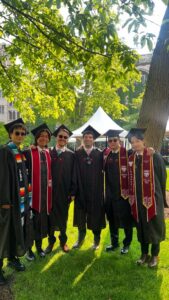
After studying in the U.S., what are your thoughts about the law in Indonesia?
My studies in the U.S. provided valuable perspective on Indonesia's legal system. The most striking difference lies in the foundational approach. While Indonesia's civil law system emphasizes codified statutes, the U.S. common law tradition focuses on case law and judicial precedent. This contrast has given me deeper appreciation for both systems' strengths.
The American legal education's emphasis on critical analysis and policy considerations proved particularly enlightening. At UChicago, we examined not just what the law states, but why it exists and how it evolves. This analytical framework will inform my practice in Indonesia, where understanding legislative intent can provide valuable insights when interpreting our legal codes.
I return with renewed conviction that Indonesia's legal system would benefit from incorporating more rigorous policy analysis and academic discourse. Our civil law tradition provides clarity and certainty, while common law methods offer dynamic interpretive tools. Blending these approaches could enhance legal reasoning and decision-making in our jurisdiction.
Most importantly, my experience reinforced the idea that exceptional legal practice transcends systems. Whether in Jakarta or Chicago, the best lawyers combine deep legal knowledge with practical wisdom and creative problem-solving. I look forward to applying these comparative insights to serve our clients with even greater effectiveness.









